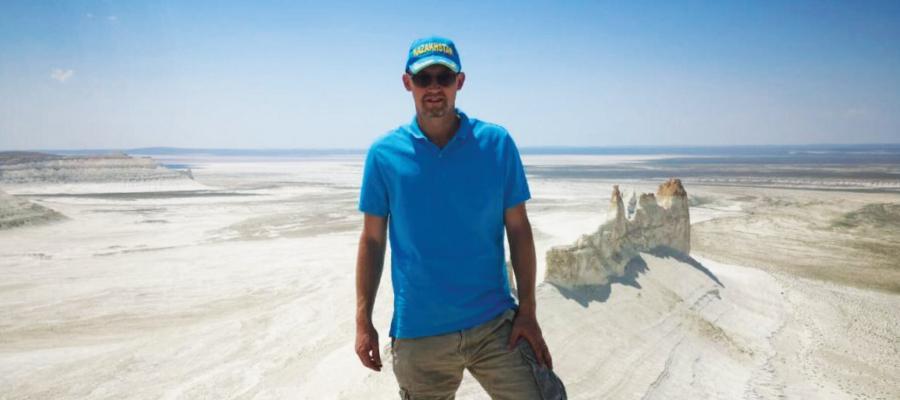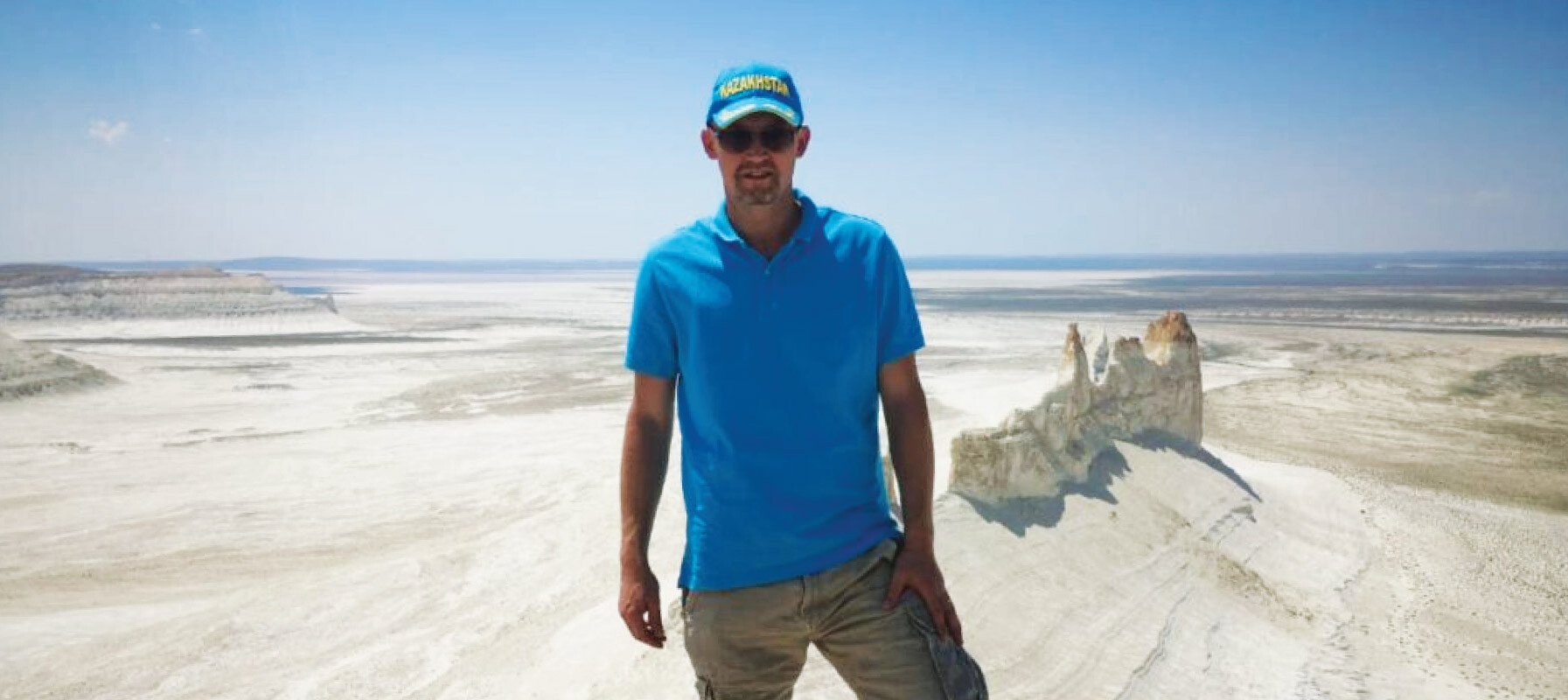Interview with
Mr. Martin Voetmann
Commercial Director
Tell our readers, first of all, how you got into shipping in the first place instead of, say, banking or lawyering, etc.?
Growing up in Denmark, it was my ambition that my professional career should have an international angle where I could use my language and communication skills in communicating with people all around the globe. Shipping and logistics at the same time have a reputation of being a very vibrant and at times hectic environment—especially when the deadlines for submitting documents or vessel arrivals are approaching. I thrive when the pressure is on, and you need to perform quickly and make stakeholders come together to get the job done.
Nowadays, being a bit further down the line in my career, the tasks are less operational, but still very exciting. Complex stakeholder management and more strategic thinking on how we can change the supply chains for our customers so they become efficient is what most of my day is committed to. This may sound cliché, but when you are dealing with landlocked and even “double landlocked” countries, there is a multitude of stakeholders across the supply chain that needs to be aligned, and this requires lots of communication and careful consideration.
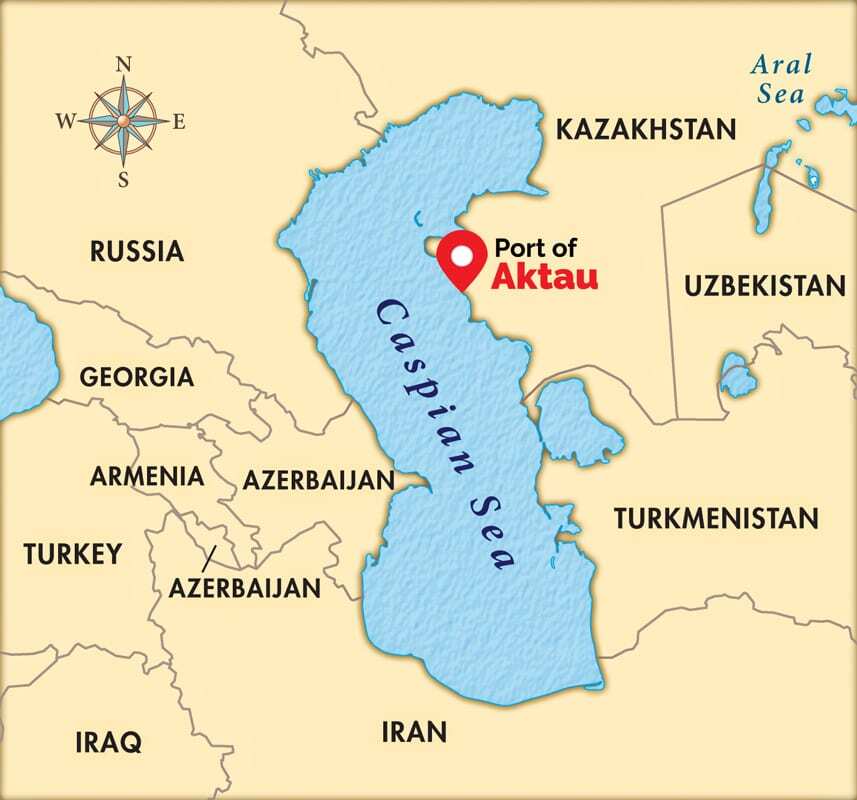
I understand that you had a career working for the agency MSC before?
I started my career in a freight forwarding company with warehousing capabilities and general freight forwarding learning the ropes of the business in general. Some years into my career, I joined MSC in Denmark and was lucky to be part of the impressive growth story that MSC has been over the years. Setting up the first vessel call of MSC into Denmark was one of the things I especially remember, but obviously it was also MSC who gave me my first stationing abroad.
At an age of 27, I was offered to go to Central Asia and head up the MSC activities in the region. My manager back then, by the way, gave me a generous 12 hours after having offered me the job to decide if I wanted to go for the next 3 years.
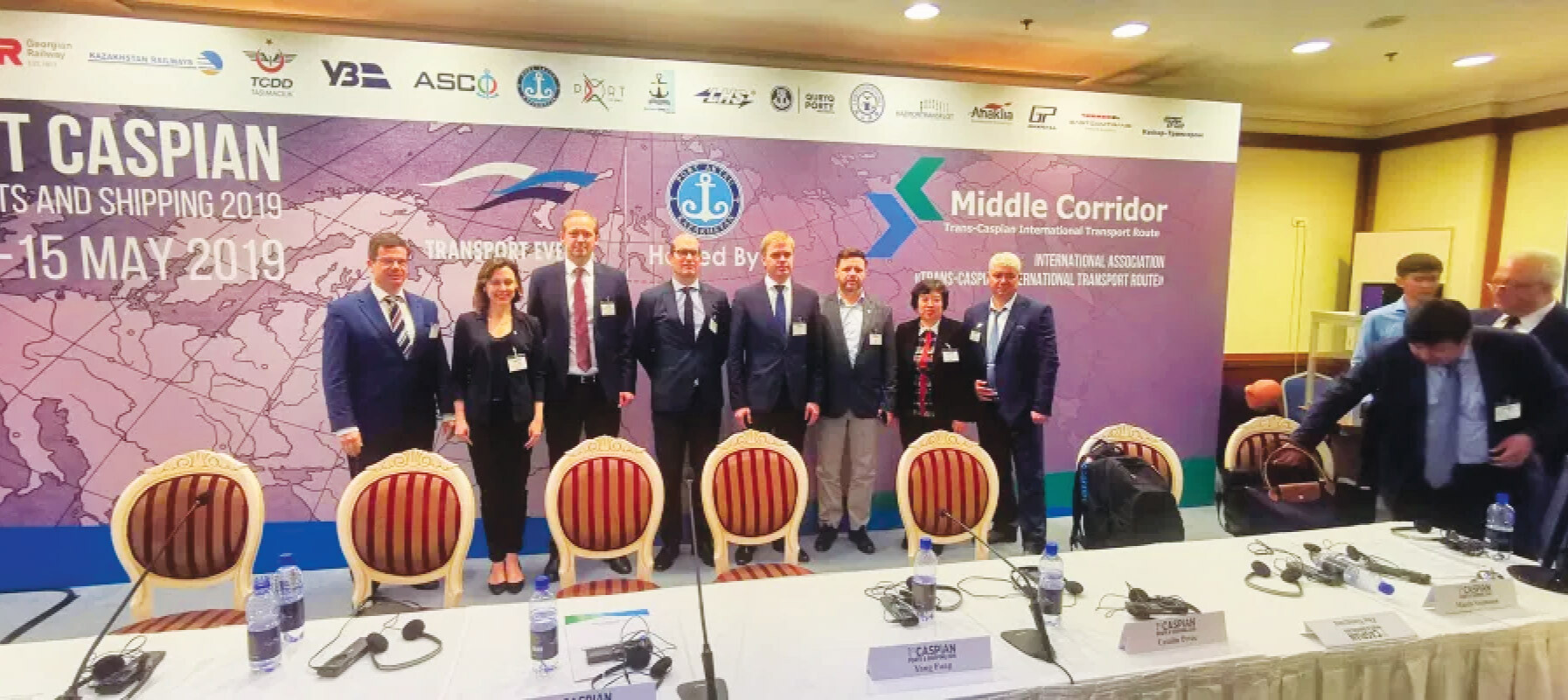
My 11 years with MSC took me through Denmark, Russia and Kazakhstan. Kazakhstan is also where I returned to after leaving MSC. Central Asia has a rich cultural background and has been part of the Soviet Union, so there are so many interesting contradictions built into the “system” which combined with the geographical placement of the countries, provide for a very complex and interesting supply chain. Having worked some years for the largest bank assisting them with various logistics assets in their portfolio, mainly warehousing and container terminals, I again joined the container shipping industry working for Russian carrier and logistics provider FESCO, before joining DP World in 2016.
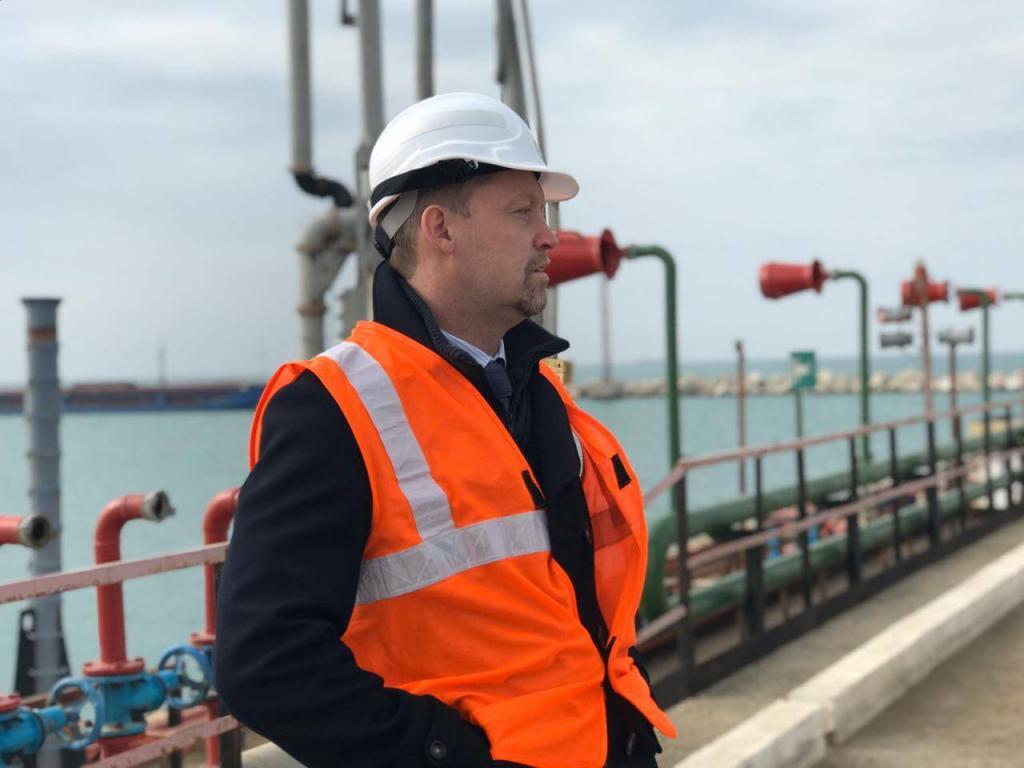
What do you find interesting about shipping overall, and how do you find it working now for a port operator as compared to working for the line?
What has never ceased to surprise me is that even in times of recession in the economies and other crises in the world, the worldwide shipping volumes still continue to grow. If you do not have a steady hand and believe in your decisions, you will lack capacity once the market takes a turn upwards. This is true for shipping as well as for railways or any other asset operating part of the supply chain.
Having said that, I still find that the biggest motivator for me is the need for communication. Shipping is still an industry where the IoT has not impacted the core business yet. It is still a very personal game in which you need to be in close personal contact with your clients and stakeholders to have an impact, and this is becoming more and more unique.
Joining DP World was less of a change than you would think. I think we are long past the time where you could put clear borders between shipping lines and port/terminal operators. As all parts of the supply chain are intending to provide a better and more holistic service to clients, it is inevitable that the borders are being eroded, and to some extent, the various players become competitors in some markets but stay supplier/client in others.
Today, my main function is in line with the DP World mission of being a trade enabler, and rather than “just” selling port services, we have set up several new freight corridors across the Caspian Sea further into Europe and other parts of the world. This has partially been done in line with the “One belt, one road” program, but also generally for a better connection in and out of Central Asia.
During the last few years, we have set up the first ever container shipping line on the Caspian Sea. As always in the container shipping story, it quickly became fully booked. We were getting ready to insert additional vessels on the service, but with the COVID pandemic, volume has dropped a bit, and currently, there is enough capacity deployed. For the sake of good order it should be mentioned that it is not DP World operating the shipping line.
So while my everyday work is more as a “trade enabler” than traditional port operator, at the same time we see all the major shipping lines becoming more serious competitors to the freight forwarders developing their capabilities across the whole supply chain. Each of the segments are initially providing a different service. However in the end, I think there is little difference between Shipping Lines, Terminal Operators and Freight Forwarders and the value proposition they want to offer as the end product. This is all to say that once you go a bit above the strictly operational issues, the strategic thinking about what you can offer more, better, faster, more transparent and in the end make better revenues from are not that different from Port Terminal operator to Shipping line to Freight forwarder.
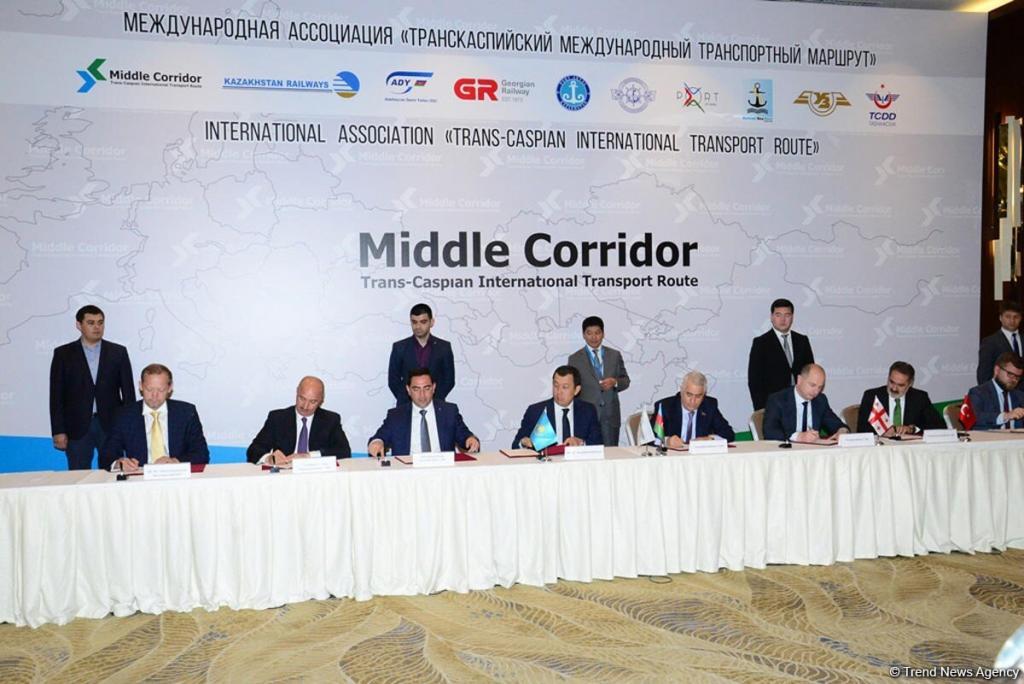
Are you a family man—wife & kids, etc.?
Yes, I have a wife and two daughters, 10 and 3 years old. I have been lucky enough to have had my family along with me for most of the postings. My children are Danish, but up until last year, neither of them had lived in Denmark yet. As the children are growing, it has been important for us that they will get a deeper knowledge of Denmark and Danish culture. So for the last year, they have been in Copenhagen getting to know Denmark, going to school and Danish kindergarten.
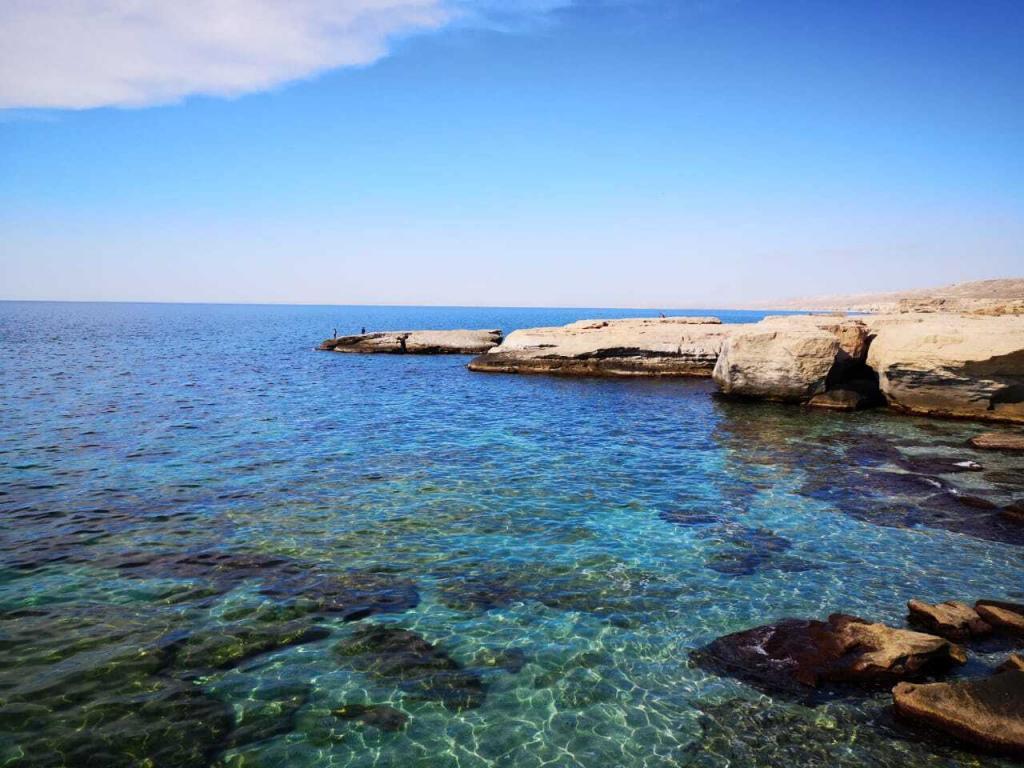
What does the future hold for you? Any plans at some stage to return to your Scandinavian roots after years in Central Asia?
Well, from experience, I have learned that you should always be careful about planning the future. When I left Denmark, it was on a 3 year contract, and here I am 16 years later and still did not come back. Returning to Scandinavia or Europe at least is obviously in the cards, and being a part of my family’s everyday life is a priority for us. Whether that will happen in Denmark or somewhere else in the world only time will tell for sure, but Denmark and Scandinavia do top all of the ratings for happiness, security. etc. ?
How can our readers get in touch with you?
Martin Voetmann
CMT Commercial Port Aktau
E martin.voetmann@dpworld.com
W dpworld.com

